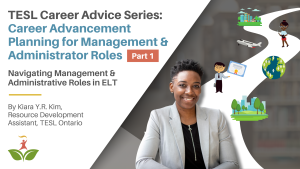 Administrative roles are important in the overall management, functioning, and strategic direction of educational institutions. These roles can encompass a wide range of responsibilities that may involve overseeing operations, implementing policies, or managing resources to ensure the overall success of the educational programs and institutions.
Administrative roles are important in the overall management, functioning, and strategic direction of educational institutions. These roles can encompass a wide range of responsibilities that may involve overseeing operations, implementing policies, or managing resources to ensure the overall success of the educational programs and institutions.
Whether you are an educator seeking to broaden your impact on a larger scale, drawn to leadership and mentorship for educators, or motivated for professional growth, embarking on the path from educator to administrator is a journey that demands both ambition and strategic navigation.
In this unique blog series, we explore the pursuit of administrative roles in the field of English Language Training (ELT). TESL Ontario collaborated with six (6) hiring managers representing various sectors of the Ontario ELT landscape, who stand ready to share their experience, advice, and wisdom along this transitional journey. This first installment of the series is designed to introduce you to the available roles and potential pathways into administration.
Continue reading →










